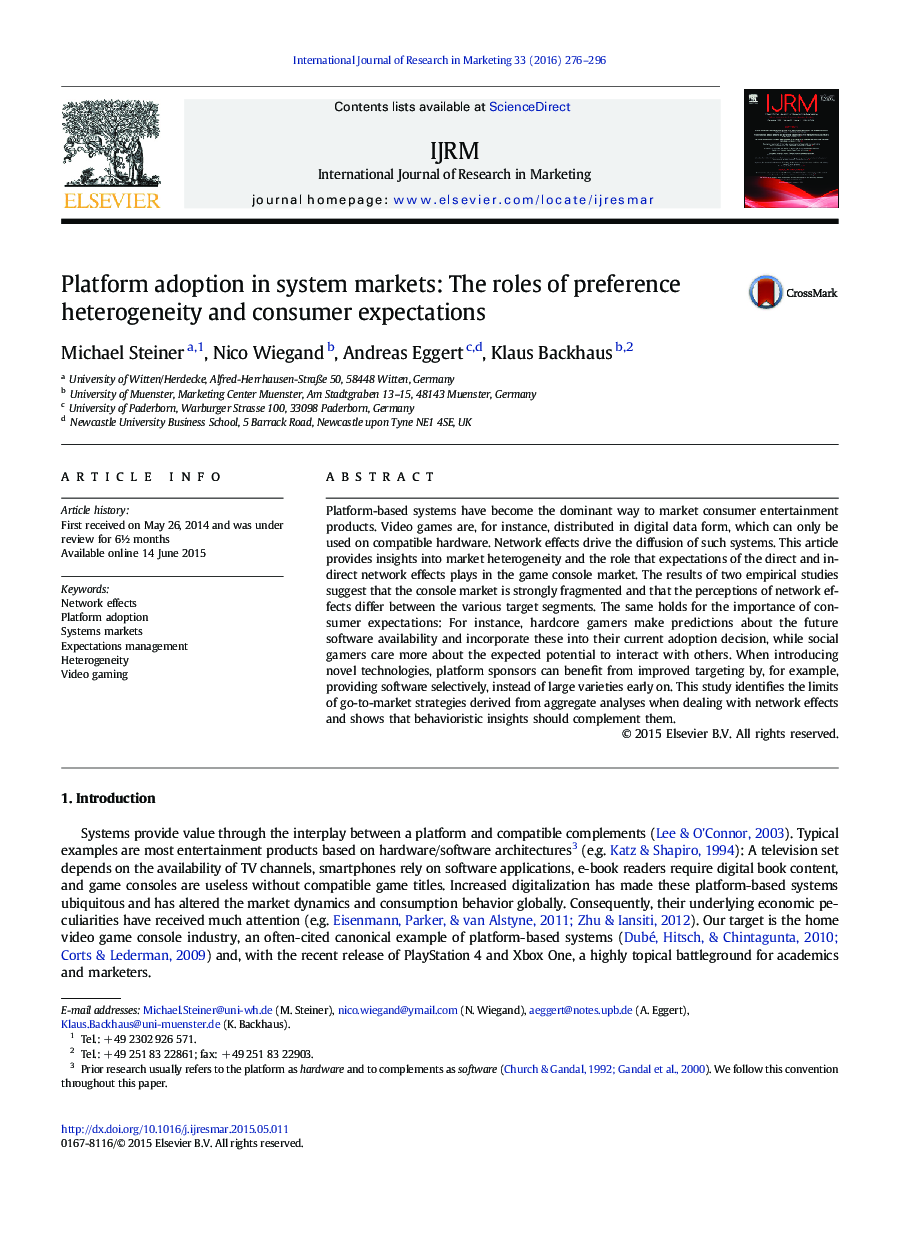| Article ID | Journal | Published Year | Pages | File Type |
|---|---|---|---|---|
| 880035 | International Journal of Research in Marketing | 2016 | 21 Pages |
Platform-based systems have become the dominant way to market consumer entertainment products. Video games are, for instance, distributed in digital data form, which can only be used on compatible hardware. Network effects drive the diffusion of such systems. This article provides insights into market heterogeneity and the role that expectations of the direct and indirect network effects plays in the game console market. The results of two empirical studies suggest that the console market is strongly fragmented and that the perceptions of network effects differ between the various target segments. The same holds for the importance of consumer expectations: For instance, hardcore gamers make predictions about the future software availability and incorporate these into their current adoption decision, while social gamers care more about the expected potential to interact with others. When introducing novel technologies, platform sponsors can benefit from improved targeting by, for example, providing software selectively, instead of large varieties early on. This study identifies the limits of go-to-market strategies derived from aggregate analyses when dealing with network effects and shows that behavioristic insights should complement them.
